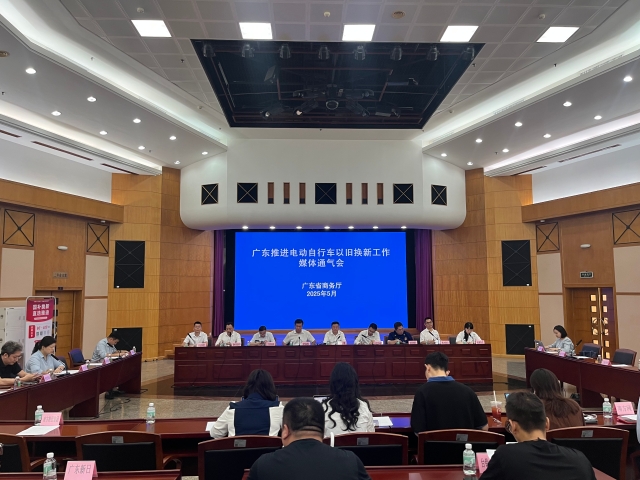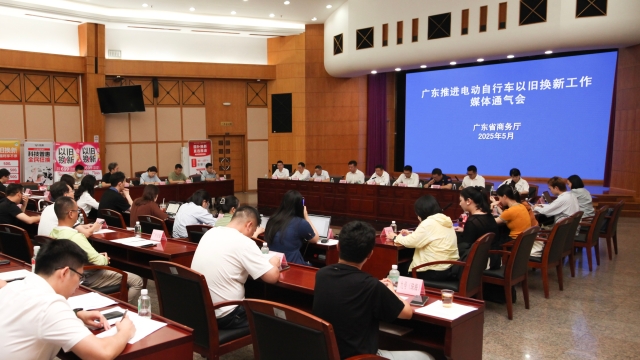On May 28, a media briefing on Guangdong's e-bike renewal program was held in Guangzhou.
The program, supported by subsidies from the national policy, has achieved significant results. By May 26, the province had sold 174,000 new e-bikes through the renewal program, ranking among the top in China, with the renewal volume being about three times that of the previous year.

A total of RMB 87.08 million in subsidy funds had been used, boosting new e-bike consumption to over RMB 400 million.
Strong performance in Pearl River Delta cities through innovative local measures
The Pearl River Delta cities have demonstrated remarkable results in the e-bike renewal program.

The top five cities in terms of renewal volume are Guangzhou (38,000 units), Foshan (37,000 units), Huizhou (29,000 units), Shenzhen (18,000 units), and Dongguan (16,000 units), accounting for about 80% of the province's total.
Various cities have introduced innovative and convenient measures to streamline the e-bike renewal process.
For example, Guangzhou launched the "E-bike Expert Service" recycling registration system to enhance old bike recycling efficiency. New bike information is entered via an "E-Code" scanning system, which improves information compliance and accuracy and increases subsidy distribution efficiency by over 50%.
Foshan is the first city in the province to pilot the "Credit + Consumer Renewal" program, leveraging the "Credit Foshan" platform to establish a new one-stop regulatory mechanism based on credit.
Huizhou has conducted policy training for county (district) staff, sales stores, and recycling companies, achieving nearly full coverage of sales stores and ensuring accurate policy interpretation.
Multi-departmental collaboration and measures
The e-bike renewal program involves a lengthy chain of processes. To address this, Guangdong has adopted a multi-departmental collaboration approach, advancing the program across the entire chain.
Department of Commerce of Guangdong Province took the lead in coordinating efforts, while other departments were responsible for specific tasks such as lithium battery health assessment and recycling, lead-acid battery recycling and treatment, and quality supervision of production and sales.

The Fire Rescue Bureau promoted consumer participation in the renewal program through comprehensive safety hazard rectification.
The Public Security Department's Traffic Management Bureau implemented online registration, simplified deregistration procedures, and established green channels for the renewal program to enhance consumer experience and satisfaction.
The e-bike renewal program has not only promoted consumption but also ensured consumer safety. It has supported enterprises while benefiting people's livelihoods, bringing both short-term and long-term advantages.
With the joint efforts of multiple departments and the active participation of local governments, the program is likely to achieve even greater success, further boosting the e-bike market and ensuring consumer safety.
Reporter | Guo Chuhua
Photo | Guo Chuhua
Editor | Hu Nan, James, Shen He
















